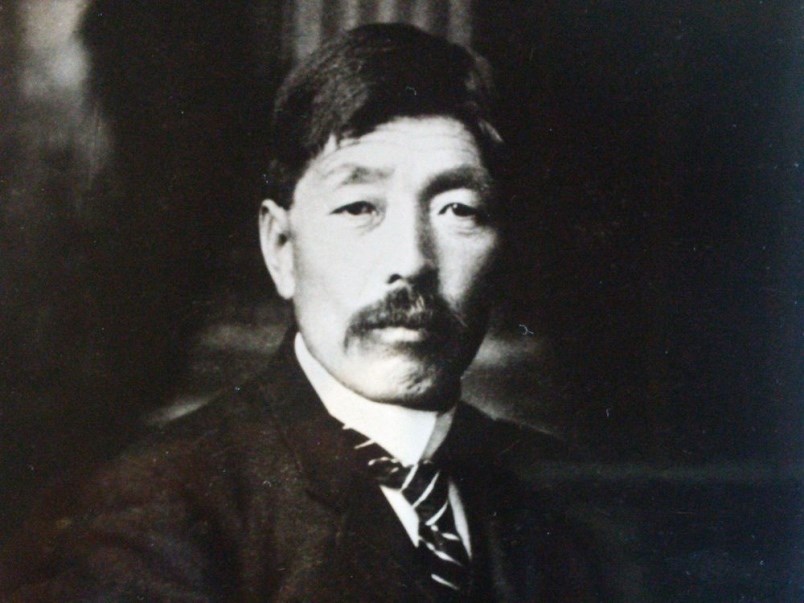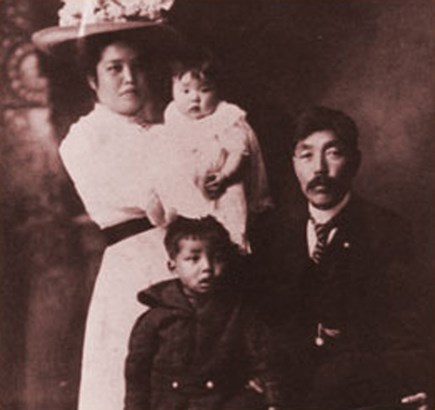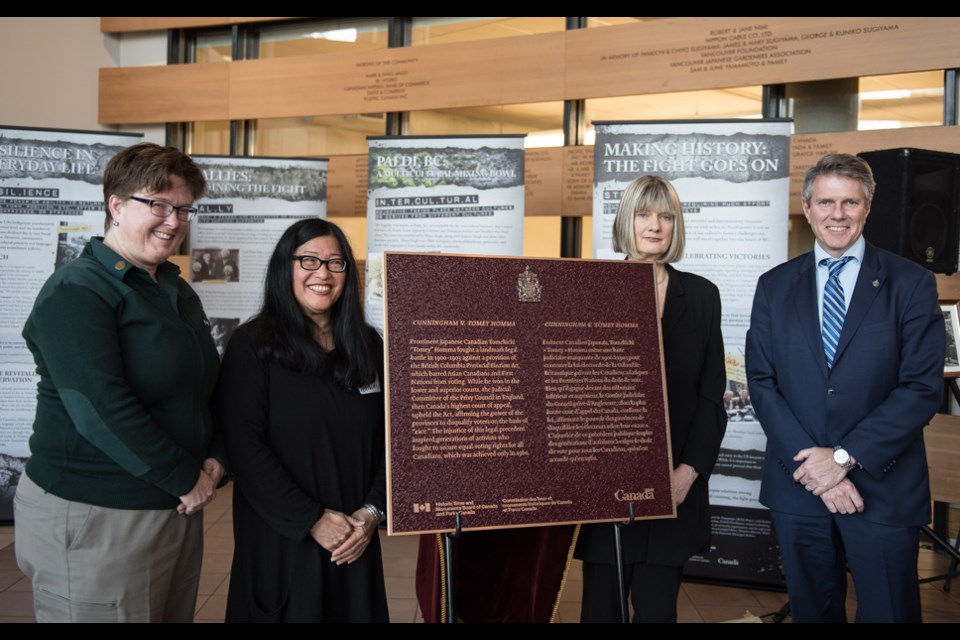For those who have grown up in Richmond, naming some of the city’s founding pioneers can come easy when you rattle off a list of elementary and secondary schools.
Doing so would likely lead one to erroneously believe it was only white settlers who built the township. But there is one exception.
The only Asian Richmond pioneer with a namesake school is Tomekichi Homma, a human rights activist said to have contributed significantly to the foundation of Canada’s modern, democratic system.
In 1900, the naturalized British subject, Steveston resident and member of the Japanese Fishermen’s Benevolent Society, took the B.C. government to court when he was denied the right to vote, because of his ethnicity.
And for that, Homma was honoured again, Dec. 10, by the Government of Canada, at the Nikkei National Museum and Cultural Centre in Burnaby.
Parks Canada unveiled a plaque, commemorating Homma’s landmark legal case (Cunningham v. Homma) as a national historic event.
Homma’s granddaughter, Tenney Homma, a former Richmond resident, accepted the honour on the family’s behalf.

“My grandfather valued being a Canadian. He stressed the importance to his children to learn English and be a law-abiding citizen. He was a civil rights activist and he instilled in his children to be kind and compassionate to others. You don’t pick on the weak and helpless, rather you come to their aid,” said Tenney, one of many grandchildren from Homma’s eight children (Tenney’s father being the youngest of them all).
Homma was born in Japan, from a prestigious Samurai family, so he was well educated, said Tenney. At age 18, this allowed him to integrate more easily in his new environment, Steveston Village.
In 1900, most minorities could not navigate the legal system, for lack of English or education, but Homma — now 35 — could, and on their behalf, he took it upon himself to sue registrar Thomas Cunningham for denying him a voting card.
Cunningham had been following the Provincial Election Act, which disqualified Japanese-Canadians, First Nations, and Chinese-Canadians from voting.
The county court and B.C. Supreme Court ruled in Homma’s favour, but the provincial government appealed the case to the Judicial Committee of the Privy Council (JCPC) in London, England
The JCPC upheld the Provincial Elections Act, which granted the provinces exclusive jurisdiction over civil rights.
According to Simon Fraser University historian Andrea Geiger, “Homma’s argument was sound,” as he noted to the courts that as a naturalized subject, he was entitled to political rights.

Geiger said the JCPC failed to find any precedent in Canada to overturn the B.C. Supreme Court and dubiously turned to U.S. law.
“What makes Cunningham v. Homma deserving of note here today, however, isn’t the poverty of the Privy Council’s reasoning, but Tomekichi Homma’s remarkable courage in challenging a profoundly unjust law in the face of intense opposition, both from within and without his own community,” Geiger told the audience at the unveiling.
According to Parks Canada, the JCPC’s decision set a precedent for decades of race-based legislation. It also had a lasting impact on federalism, as it granted authority to the provinces to dictate voting rights.
However, “Homma’s legal battle is known as one of the most significant acts of resistance to repression in the history of human rights in Canada. Homma’s demand for equitable treatment influenced others to fight for equal rights, and, in retrospect, the court case has become crucial to our understanding of the context and events that led to the enactment of the Canadian Bill of Rights in 1960 and the entrenchment of the Canadian Charter of Rights and Freedoms into the Constitution Act of 1982,” noted Parks Canada.
When World War II broke out and Japan bombed Pearl Harbour, Homma, by then a senior, was relocated to the Popoff internment camp, near Slocan City, where he would die, in 1945, age 80. Four years later, Japanese-Canadians were enfranchised.
“He served the community with dignity and humility. He was quite a man,” said Tenney.
“The fact the plaque acknowledges the civil rights and voting franchise for everyone, especially his Japanese community, is significant,” she said.
When Richmond became a growing suburb in the 1950s, dozens of schools were built, but none recognized minority pioneers. But in 1990, a new school at the foot of Railway Avenue was constructed and named after Homma.
Representatives from the school attended the plaque ceremony. English teacher and librarian Carole Wilson, who’s been at the school since 1991, said Homma’s characteristics are memorialized in the school’s edict, “Seeking Harmony, Respecting Diversity,” which is printed on the entrance beam. The Homma trophy goes to students who show spiritedness, perseverance, thoughtfulness and humility — the qualities Homma lived his life by, said Wilson.
Tenney said the Homma family is now a “United Nations,” of mixed ethnicities.
“Grandpa would like that. He encouraged his children to be Canadians, as well as maintaining Japanese culture. And he wanted them to assimilate into Canadian culture.”



